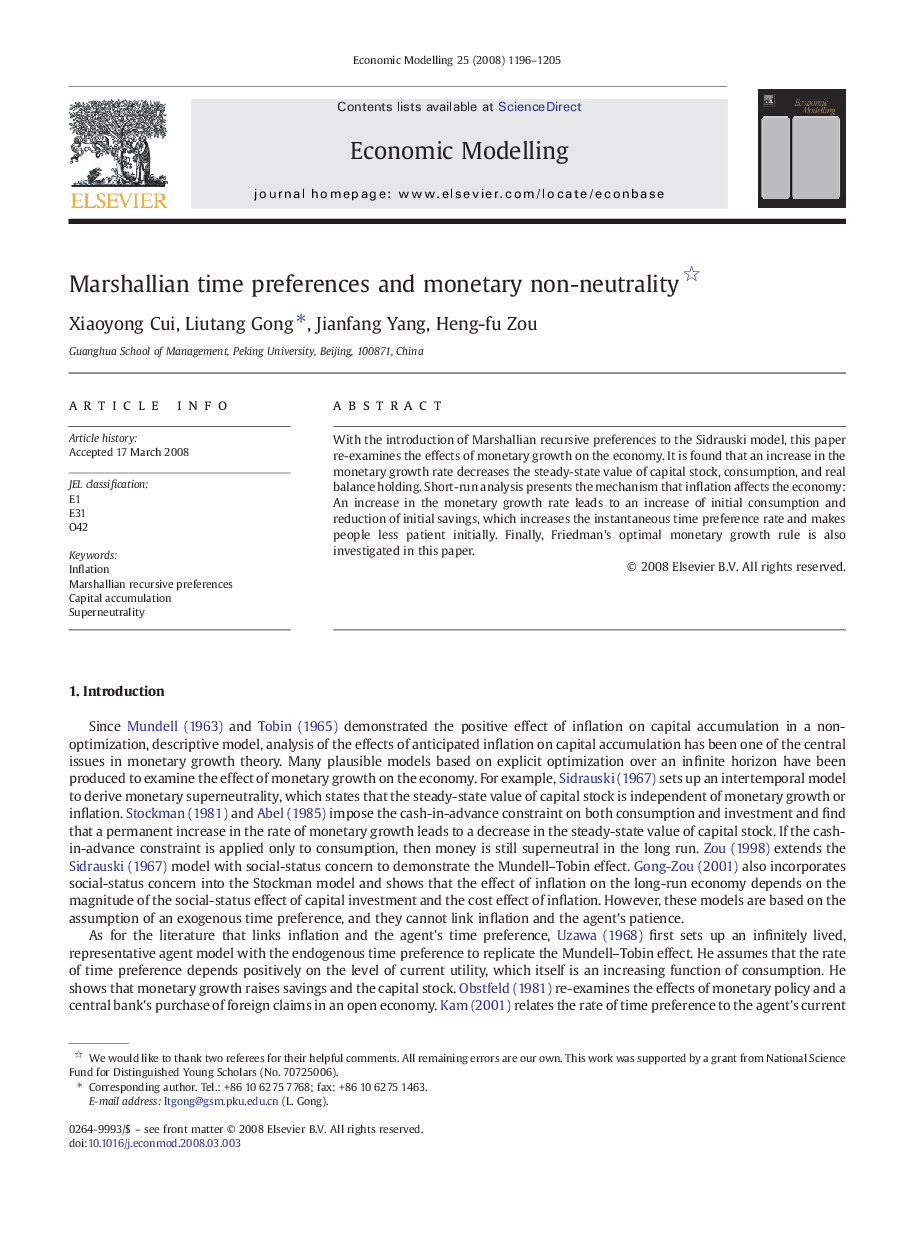| Article ID | Journal | Published Year | Pages | File Type |
|---|---|---|---|---|
| 5056007 | Economic Modelling | 2008 | 10 Pages |
Abstract
With the introduction of Marshallian recursive preferences to the Sidrauski model, this paper re-examines the effects of monetary growth on the economy. It is found that an increase in the monetary growth rate decreases the steady-state value of capital stock, consumption, and real balance holding. Short-run analysis presents the mechanism that inflation affects the economy: An increase in the monetary growth rate leads to an increase of initial consumption and reduction of initial savings, which increases the instantaneous time preference rate and makes people less patient initially. Finally, Friedman's optimal monetary growth rule is also investigated in this paper.
Related Topics
Social Sciences and Humanities
Economics, Econometrics and Finance
Economics and Econometrics
Authors
Xiaoyong Cui, Liutang Gong, Jianfang Yang, Heng-fu Zou,
